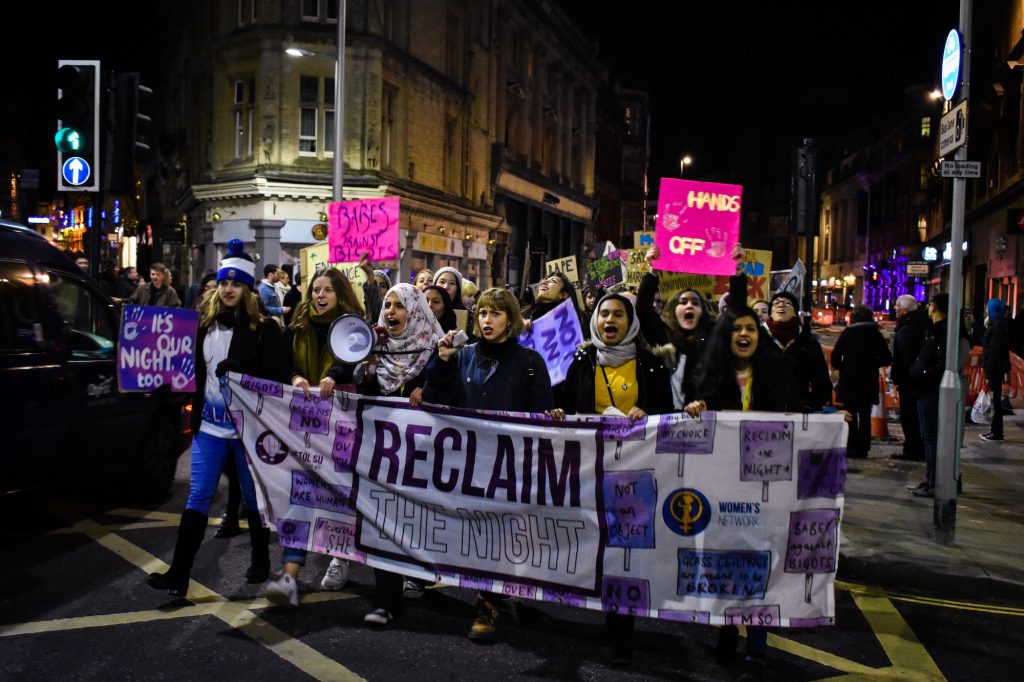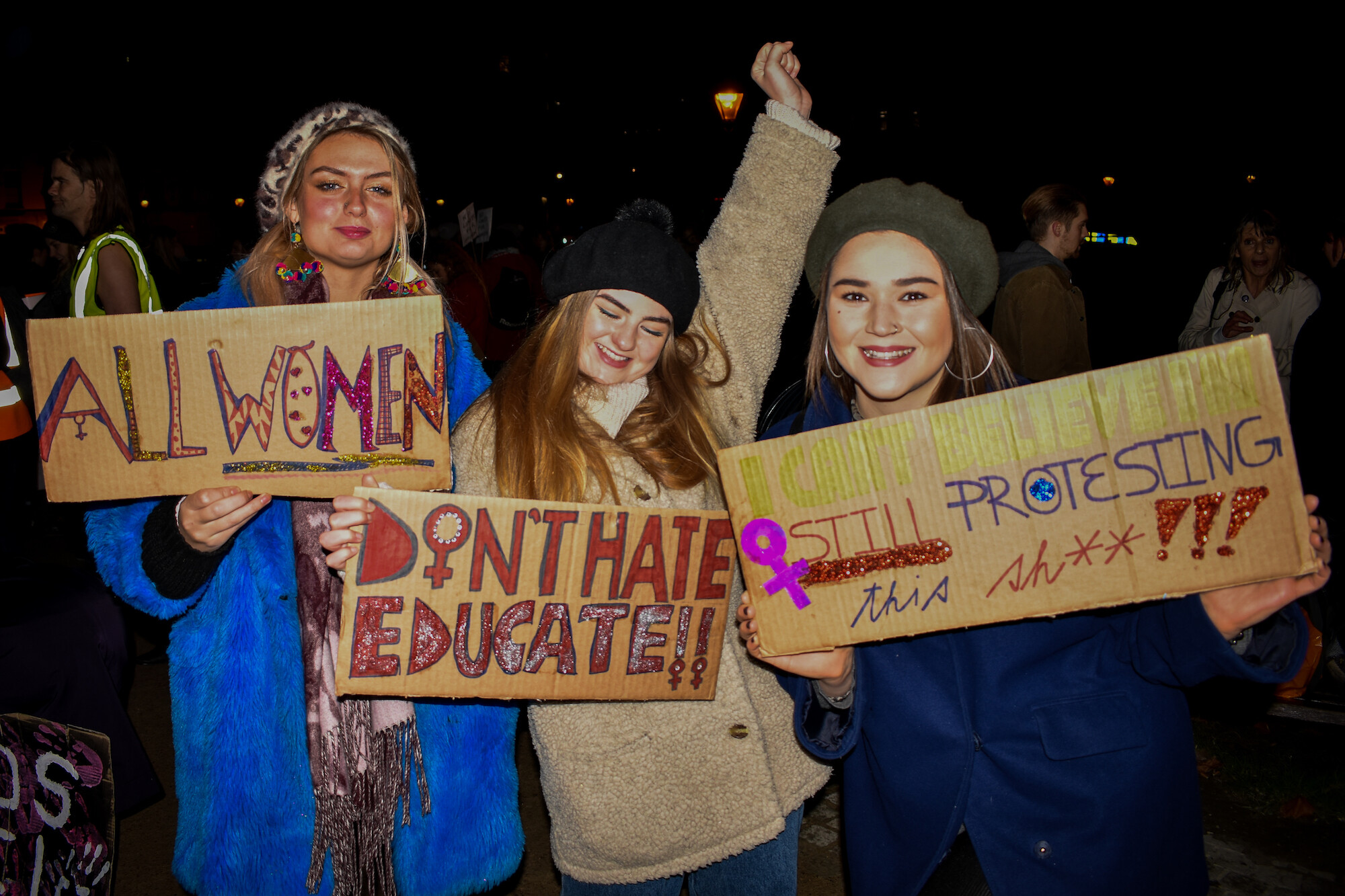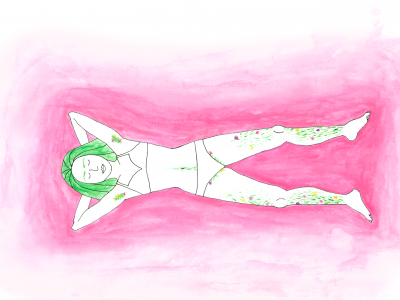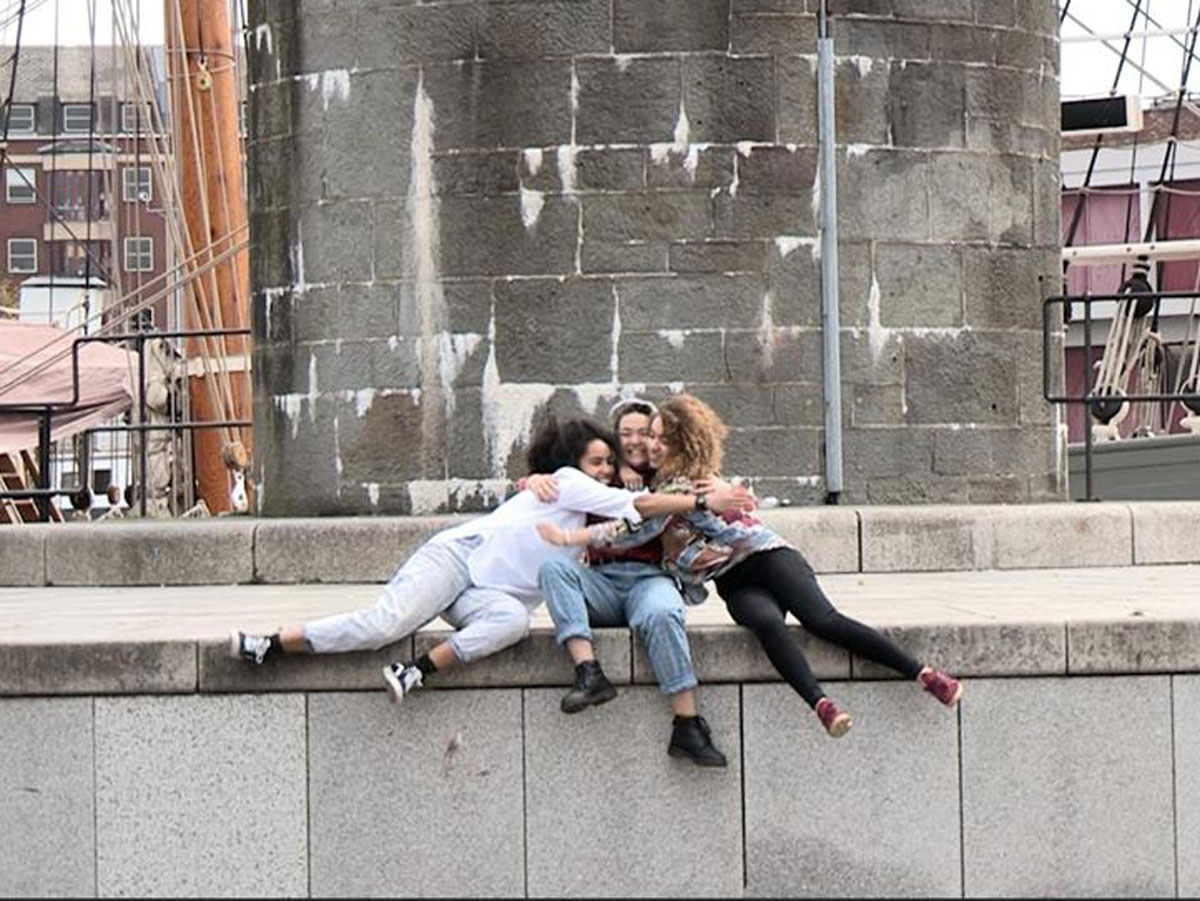Why men with privilege need to step up to support women

The founder of Reclaim the Night Bristol argues that those with power should use it to help those with less privilege.
*Content warning for rape, sexual assault and violence.*
Reclaim the Night is a women-centric march against sexual violence and for gender equality. When you Google ‘why do people march for Reclaim The Night?,’ the first result tells you that ‘there are an estimated 47,000 rapes every year, around 40,000 attempted rapes and over 300,000 sexual assaults.’ These are important statistics, and the immensity of that number is why many women hold their keys in their fists when they walk alone at night. But the women you picture when you see these statistics are probably white, able-bodied and straight – and I don’t think these statistics tell the whole story of why so many of us march.
I don’t think these statistics tell the whole story of why so many of us march.
As a bisexual woman of colour (WoC), I’ve personally experienced biphobia in abusive relationships, been the punchline to biphobic jokes, and had my expression of my sexual identity shut down by religious men in my community. I’ve reported a fat total of zero of these incidents, although every one has shaped the way I interact with with the entire world (which is mostly made up of cis-hetero spaces dominated by men). Those statistics I mentioned don’t tell you about any of these implications, nor do they tell you about any of women’s real stories.
I come from Malaysia, where the rape rate is high. But outside of women’s organisations, no one listens to women. Women back home organised their first Women’s March in 2018 – many of whom were LGBT+ – and received backlash, even from the government. The misogyny the organisers have faced is linked to their LGBT+ identity. If a Woman’s March is not the place to practice intersectionality*, then where is?
As a migrant and international student, I got involved with activism at Bristol University. Not only did I want to raise awareness of social issues, I also wanted to empower fellow LGBT+ people of colour who tend to stay away from majority white activist groups. But as I talked to more to people who don’t identify themselves within liberation groups (such as women, LGBT+ or BME people), I’ve concluded: most students can’t be arsed to support campaigns they can’t relate to.
But as I talked to more to people who don’t identify themselves within liberation groups (such as women, LGBT+ or BME people), I’ve concluded: most students can’t be arsed to support campaigns they can’t relate to.
I am currently planning the Bristol Reclaim the Night march, and it has to be one of the worst examples I’ve experienced of privileged students having a ‘cba’ attitude. The best support has been given from women, often within minority groups like LGBT+ or BME because when I’ve talked to men about the march, there is often an air of disinterest. So many women talk about their experiences with misogynistic abuse, but so few men call out other men for misogynistic behaviour. I remember hosting a launch for Reclaim, including the Reclaim Photo Series, during which I interviewed women about their experiences. There was free cake, and posters with information on Reclaim and its importance. A group of men came and asked if the cake was free. They then immediately took the cake and left.

It is common for WoC to speak into spaces that don’t listen to them. In an activist meeting, I once argued that decolonisation should be prioritised in left-wing circles. It should (arguably) not be an argument in the first place. But I was in a white room, and my voice eventually grew quieter. Another woman I talked to, Hillary, summed this up. “Asserting myself is about being able to own my voice, own my identity as a black woman and own my truth, and not conform to the form of myself that is palatable to what society wants me to be.”
There cannot be a discussion of intersectionality without discussing men’s roles as allies. Intersectionality cannot just be the responsibility of women.
There cannot be a discussion of intersectionality without discussing men’s roles as allies. Intersectionality cannot just be the responsibility of women. Reclaim the Night has been going for more than 40 years. It’s time the brunt of the work to dismantle the patriarchy is not just carried by marginalised groups. This is not to say men can take up women’s spaces – it is to say they must support women’s spaces because women still feel unsafe. Aisling, who I interviewed for the Reclaim Photo Series, said: “Safety doesn’t encapsulate what I truly mean. I would like to feel whole again, unburdened by fear, not a visitor in my own body – like there is someone sitting in the space where my soul should be. I want not to expect the worst of a night out and be pleasantly surprised when I am only groped once. My fear is such a waste of time. I do not want it.”
Safety does not depend on just lowering the statistics. Safety should mean all women can go out on the street without having to worry if their dress shows too much cleavage or if they’d be harmed as a result of drinking alcohol. Safety should mean that LGBT+ women aren’t sexualised for cis-hetero men. Safety should mean that as an Asian woman, I can go out without a man forcing himself on me based on the presumption that Asian women are submissive.
It is hard enough as a migrant without the same rights as a UK citizen to organise in spaces where I show myself publicly. With the fear of deportation, many migrants tend to avoid public-facing activism. Organising Reclaim the Night could jeopardise my safety – which is perhaps why I’m so angry when those with privilege refuse to listen to marginalised voices.
Reclaim isn’t just about protesting, it’s also about listening to women. Without the voices of our most marginalised communities, Reclaim the Night’s message would be shallow. Every woman’s story is out there – people just aren’t looking.
Bristol Reclaim The Night will be held on 24 November, starting 5pm at Queen’s Square. All genders are welcome. Go to the Facebook event for more details.
Intersectionality: the interconnected nature of social categorizations such as race, class, and gender as they apply to a given individual or group, regarded as creating overlapping and interdependent systems of discrimination or disadvantage.

About Rife





